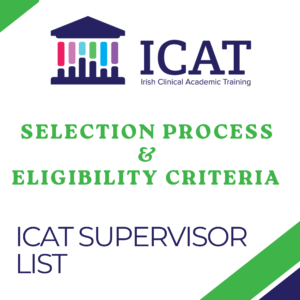Supervisor Database Search
Guidance for ICAT Supervisors
Supervisor Database
Full NameProfessor Denis O'Mahony
- Other
Prescribing optimization in older people
- Medicine
- Geriatric Medicine
- Pharmacology
The research programme has, since 2006, focused on prescribing in multi-morbid older people in hospital, in primary care and in the nursing home setting. Our group has developed the STOPP/START criteria for potentially inappropriate medications (PIM's - STOPP criteria) and potential prescribing omissions (PPO's - START criteria).
STOPP/START criteria are now in their second iteration (published 2014). STOPP/START criteria as an intervention have been shown to be beneficial in 4 RCTs, i.e.
(i) improving medication appropriateness (Gallagher P et al., 2011)
(ii) Reducing the incidence of major polypharmacy and falls (Frankenthal D et al., 2014)
(iii) Reducing medication costs (Frankenthal D et al., 2014, O'Connor M et al., 2016)
(iv) Reducing adverse drug reaction (ADR) incidence in acutely ill older people in hospital. (O'Connor M et al., 2016)
RCTs (i) and (iv) were undertaken and completed by our group in UCC.
We are currently co-ordinating an EU-funded (FP7) multi-centre RCT called SENATOR (www.senator-project.eu). The RCT involves randomizing acutely ill multi-morbid older patients with polypharmacy to normal pharmaceutical care (control arm) or to SENATOR software scrutiny of current medications plus normal pharmaceutical care (intervention arm), with the aim of determining if SENATOR software reduces the rate of incident ADRs in hospital.

